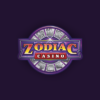In recent years, the European gambling market, particularly the online sector, has flourished, emerging as a vibrant part of the digital economy. European Union countries are actively collaborating to establish a cohesive regulatory framework, fostering industry growth while prioritizing consumer protection and financial crime prevention.
Navigating Regulations
Regulations for online gambling, governed by various gambling laws, vary across EU countries, with specific criteria for companies seeking to operate in this sector. Obtaining a license typically entails meeting stringent standards related to financial stability and social responsibility.
License Application Timeline
Securing a gambling license in Europe is a time-consuming process, spanning several months to a year, depending on the country. This period encompasses application submission, document collection, regulatory verification, and applicant due diligence.
Applicant Criteria
Key requirements for license applicants include:
- Meeting authorized capital thresholds, which range from 100,000 to 500,000 euros on average.
- Demonstrating financial stability and absence of debts.
- Maintaining a positive business reputation for company managers and owners.
- Implementing effective risk management and anti-money laundering measures.
- Ensuring compliance of software and gaming platforms with technical and security standards.
Personnel Standards
Staff employed by online gambling companies must possess relevant qualifications and industry experience. Additionally, specialized training programs on social responsibility and gambling addiction prevention are crucial for personnel.
Gambling regulations in Malta (MGA) 2024
In 2024, Malta’s gambling regulations overseen by the Malta Gaming Authority (MGA) continued evolving to ensure a robust and transparent industry. The MGA enforces strict licensing criteria, emphasizing financial stability, integrity, and anti-money laundering compliance for gambling operators. Operators must also prioritize responsible gambling measures, including self-exclusion options and support resources for players. The MGA stays ahead of industry trends like cryptocurrency gambling and esports, maintaining Malta’s reputation as an innovative gambling hub. Through transparency, communication, and enforcement, Malta fosters a safe and competitive gambling environment under the MGA’s oversight.
Gambling regulations in Gibraltar 2024
In 2024, Gibraltar’s gambling regulations, overseen by the Gibraltar Gambling Division (GGD), remained robust and adaptive. Gibraltar’s gambling industry is known for its high gross gambling yield, reflecting the significant revenues generated by licensed operators. The licensing process requires operators to demonstrate financial stability, integrity, and compliance with anti-money laundering protocols. Responsible gambling measures, including self-exclusion programs and support resources, are mandated for licensed operators. The GGD stays abreast of industry trends like cryptocurrency gambling and esports to maintain relevance. Through transparency, oversight, and stringent enforcement, Gibraltar fosters a safe and reputable online gambling environment, solidifying its status as a leading jurisdiction in the field.
Gambling regulations in the UK 2024
The UK stands as a global leader in online gambling, boasting stringent yet fair regulatory standards. The UK is also a major hub for sports betting, with a well-regulated market that ensures fairness and transparency. The Gambling Commission (UKGC) oversees all forms of gambling, including online activities, ensuring fairness, protecting vulnerable individuals, and preventing offenses. Companies seeking to operate in the UK’s online gambling market must obtain a license from the UKGC, a process involving detailed business models, technical readiness, and commitments to fair and responsible gaming. Key applicant requirements include financial strength, money laundering prevention, detailed software descriptions, and player data security measures. While there’s no fixed minimum share capital requirement, companies must prove sufficient financial resources to cover operational costs and player payouts.
Gambling regulations in the Isle of Man 2024
The Isle of Man is a top destination for online gambling companies, known for its innovation-friendly policies and attractive regulatory environment overseen by the Gambling Supervision Commission (GSC). The Isle of Man is particularly attractive to online casino operators due to its innovation-friendly policies and efficient licensing process. The application process involves submitting comprehensive documentation to demonstrate compliance with GSC standards, typically taking 10 to 12 weeks. Financial requirements vary based on license type and business model but necessitate sufficient resources to cover liabilities and operating costs. Key applicant requirements include financial transparency, money laundering prevention, and integrity verification for owners and managers. Personnel must have appropriate qualifications, and ongoing training in responsible gambling and anti-money laundering is expected. Overall, securing a license in the Isle of Man facilitates entry into international markets, enhancing a company’s reputation for reliability and integrity
Gambling regulations in Cyprus 2024
Cyprus, strategically located between Europe, Asia, and Africa, is a prime location for online gambling services expansion with its advantageous tax system, stable economy, and EU membership. The National Betting Authority (NBA) regulates gambling activities, requiring companies to meet strict standards for financial stability, transparency, and reliability to obtain a license.
The application process entails detailed company information, including business plans, ownership details, funding sources, and technical platform specifics, typically taking 3 to 6 months for approval. Financial requirements vary based on license type, necessitating adequate funds to cover operational costs and liabilities.
Key applicant requirements include proof of financial stability, a comprehensive business plan, anti-money laundering policies, and robust gaming fairness and data protection systems. Qualified personnel trained in responsible gaming and fraud prevention are essential.
Operating in Cyprus offers tax benefits and access to EU markets, but success requires meticulous planning, regulatory compliance, and continuous service improvement. Obtaining a license demands thorough preparation and legal expertise in the gambling industry.
Gambling regulations in Estonia 2024
Estonia stands out for its tech-savvy and entrepreneurial culture, making it a leading regulator of online gambling. While Estonia is known for its online gambling regulations, it also has a regulatory framework for land-based casinos, ensuring a comprehensive approach to gambling oversight. Governed by the Ministry of Finance and the Tax and Customs Board, Estonia requires companies to obtain both operating and activity licenses. The application process involves detailed documentation, including business plans and financial stability proof, taking 4 to 6 months for operating licenses. Financially, a minimum share capital of €1 million is required to ensure stability. Applicants must be registered in Estonia or the EU, with clean reputations and systems compliant with technical standards. Employee qualification and training are crucial for compliance. Estonia’s regulatory framework offers a balanced environment, promoting both innovation and adherence to strict standards, demanding meticulous planning and high operational excellence for success.
Gambling regulations in Lithuania 2024
Lithuania, a member of the EU, offers a regulated and transparent environment for online gambling, overseen by the State Tax Inspectorate (STI) under the Ministry of Finance. In addition to online gambling, Lithuania also regulates its national lottery, ensuring transparency and fairness in all gambling activities. Companies seeking licenses undergo a comprehensive application process, including financial stability and compliance checks, lasting 6 months to a year. Financially, a minimum share capital of approximately 1.1 million euros is required, demonstrating reliability. Applicants must register in Lithuania or another EU/EEA country, maintain clean reputations, and provide a secure gaming platform meeting technical and safety standards. Staff training on responsible gambling and anti-fraud measures is essential. Lithuania’s stable regulation and clear requirements make it an appealing jurisdiction for international operators expanding into the EU, provided they adhere to strict regulations and operational standards.
Gambling regulations in Curacao 2024
Curaçao, located in the Caribbean Sea, remains a top choice for online gambling due to its favorable tax system, lenient laws, and speedy licensing process. Curacao is known for its wide variety of casino games, attracting players from around the world to its online platforms. The regulatory body, Curaçao eGaming, oversees licensing and supervision.
The licensing process in Curaçao is relatively quick, taking 2 to 4 months. While there’s no strict minimum share capital requirement, companies must demonstrate financial stability, often aiming for an authorized capital of at least USD 100,000.
Applicants must register in Curaçao, maintain clean reputations, provide secure gaming platforms, and implement measures against money laundering. Staff training in regulatory compliance and customer service is crucial.
Overall, Curaçao remains a prime destination for online gambling, offering efficient licensing solutions. Success requires strict adherence to regulations and a commitment to integrity and responsible gambling.
FAQ: Gambling Regulations in Europe 2024
Which European country has the largest online gambling market?
The United Kingdom holds the largest market for online gambling activities in Europe, with a well-established regulatory framework and a diverse range of operators. The UK’s market is driven by a wide range of activities, including online wagering, which is highly popular among players.
Which betting companies have the largest market share in Europe?
Some of the betting companies with the largest market share in Europe include Bet365, William Hill, and Paddy Power Betfair.
What are the biggest licensed online casinos in Europe?
Some of the biggest licensed online casinos in Europe include 888 Casino, LeoVegas, and Betsson Group.
What are the most popular sites for playing online poker in Europe?
Popular sites for playing online poker in Europe include PokerStars, partypoker, and 888poker.
Which is the oldest online betting company in Europe?
The oldest online betting company in Europe is Intertops, which was founded in 1983 and launched its online platform in 1996.
Which European country has the lowest share capital requirements for online gambling?
Malta is known for having relatively low share capital requirements for obtaining an online gambling license, making it an attractive destination for operators.
Which European country is the fastest to get an online gambling licence?
Estonia is recognized for its efficient and streamlined process for obtaining an online gambling license, with a relatively quick turnaround time compared to other European countries.





















